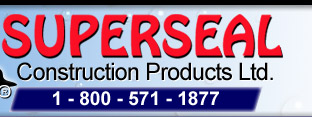| Page
1 Page
2 Page
3
Page
4
|
 Click
to go to page 1 Click
to go to page 1
to find out repairing a subfloor
Click to go to page 2
for information on installing a basement subfloor
Click to go to page 3
for information on installing subfloors
Click to go to page 4
to read about subfloor leak detection
|
Alkalinity & Subflooring |
 |
Alkalines are crystallized salts that can be found in both soil and concrete.
Measures of alkalinity are usually expressed in terms of a pH number. The pH scales range from 1-14 with 7 being neutral. Numbers 1-6 indicate increasing acidity while numbers 8-14 indicate increasing alkalinity. Readings of pH levels in excess of 9 have been known to affect adhesives, resilient subflooring and floor coverings. PH levels of 9 are usually suggestive of excessive vapor/moisture transmission.
Alkalines in soil remain stagnant until the soil gets wet. Once wet, moisture carries the alkalines in the soil to the concrete slab below your floor and eventually into your home.
Concrete by nature is a highly alkaline material. Under normal conditions this does not affect subflooring materials, resilient floor coverings and adhesives. However, it does become a factor when there is excessive moisture vapor or heavy rains.
Capillary rise causes moisture from within the ground to rise upwards. When the moisture rises it carries the alkaline salts from soils and the concrete slab to the surface. Once on the surface the alkaline salts can degrade adhesives, subflooring materials, and resilient floor coverings. This leads to poor appearance, maintenance difficulties and in extreme cases, total floor failure. The standard 4 or 6 low-density polyethylene membrane commonly used as a subflooring moisture barrier is of little to no use. Alkalines in the concrete attack the stabilizers in the polyethylene causing the low-density subflooring membrane to break down into a brittle, non-performing mess. In addition, workers cannot walk on low-density polyethylene subflooring as it's easily punctured.
 subflooring membrane is made of a High Density polyethylene that's impervious to alkaline salts from soils and concrete and is tough enough to withstand workers walking on it during the pour. subflooring membrane is made of a High Density polyethylene that's impervious to alkaline salts from soils and concrete and is tough enough to withstand workers walking on it during the pour.
|
Radon Gas & Subflooring
 Radon gas enters your home mainly through the concrete floor and basement walls via capillary action. Radon gas can pass through traditional wood Subflooring and enter your living space lowering your indoor air quality.
Radon gas enters your home mainly through the concrete floor and basement walls via capillary action. Radon gas can pass through traditional wood Subflooring and enter your living space lowering your indoor air quality.  subflooring membrane resists radon gas and allows it to be vented away safely. subflooring membrane resists radon gas and allows it to be vented away safely. |
Waterproofing your Subflooring Materials
 Subflooring repairs can be difficult and expensive and is definitely not a job you ever want to have to do more than once, if at all.
Subflooring repairs can be difficult and expensive and is definitely not a job you ever want to have to do more than once, if at all.  subflooring is the ultimate protection that will make basement subflooring repairs a thing of the past. subflooring is the ultimate protection that will make basement subflooring repairs a thing of the past.
 subfloor membrane can be installed easily under any type of flooring materials and provides a lifetime of protection. subfloor membrane can be installed easily under any type of flooring materials and provides a lifetime of protection.
 can be installed as: can be installed as: |
- Laminate subflooring
- Hardwood subflooring
- Tile subflooring
|
- Plywood subflooring
- Vinyl subflooring
- Bamboo subflooring
|



for more information on
a concrete foundation
click next
|
|
|



